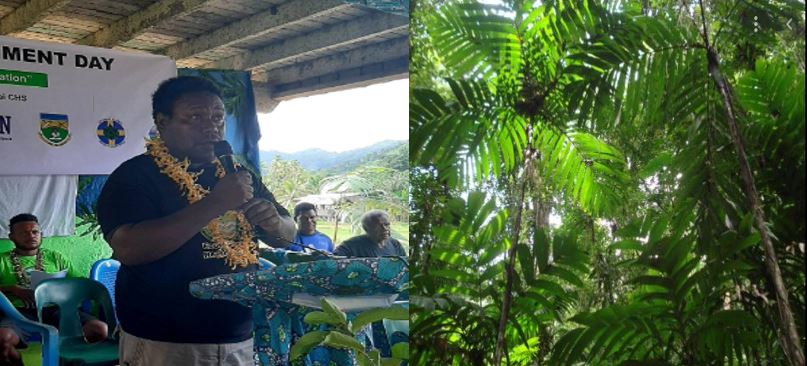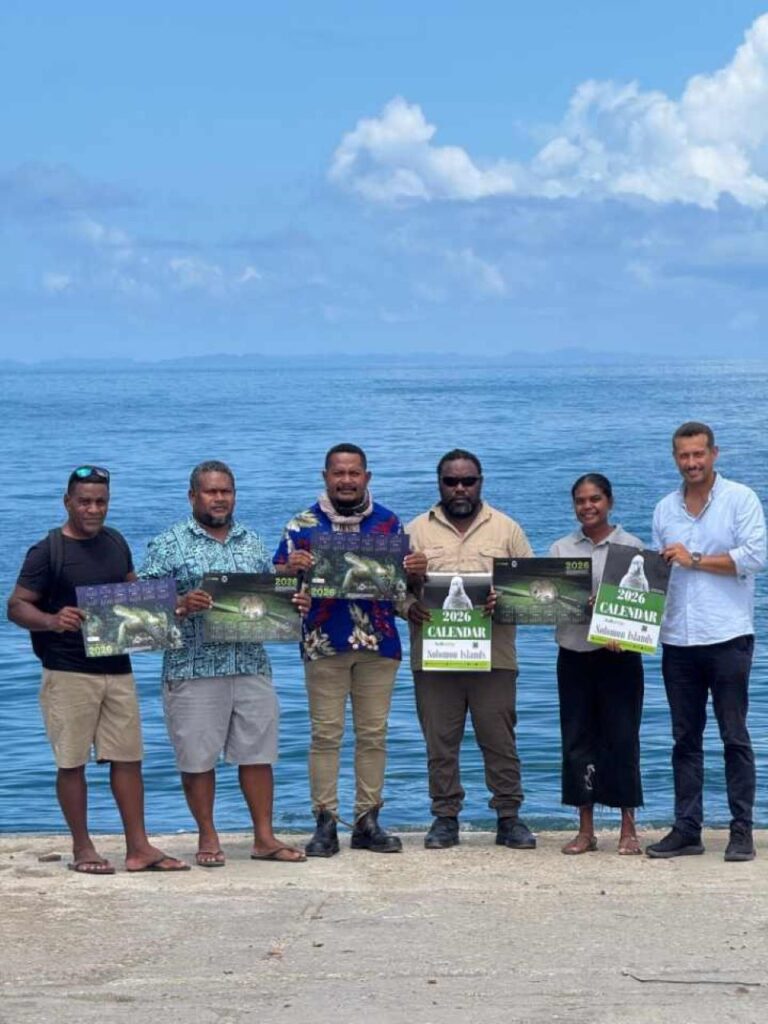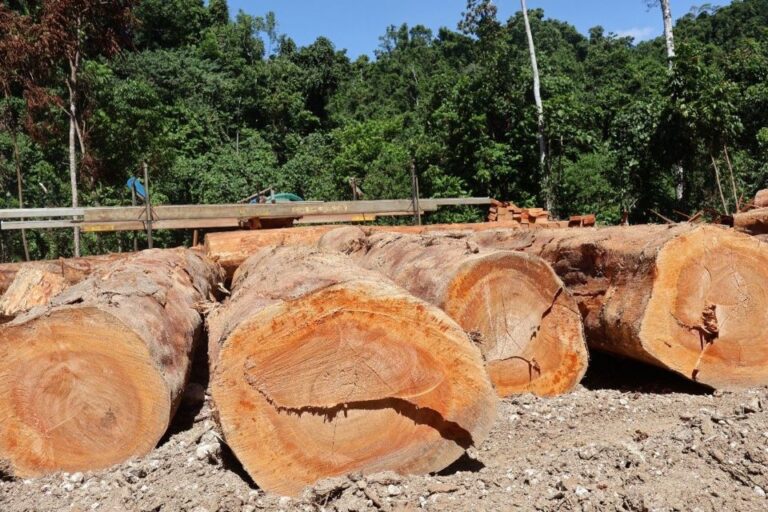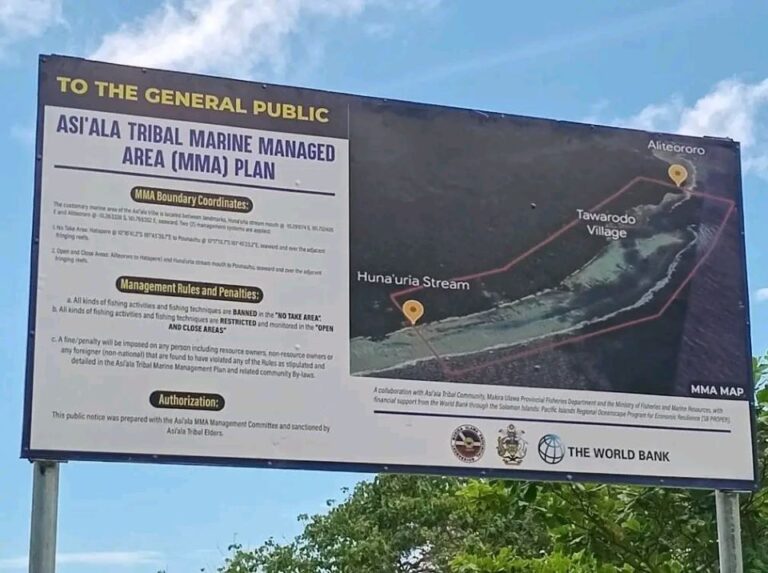BY JOHN HOUANIHAU
SOLOMON Islands Rangers Association’s General Secretary and Mai-Maasina Green Belt Initiative, Vice Chairman argue that taking action to protect the natural environment will create more job opportunities and businesses in the country.
Eddie Huitarau said protecting and looking after our natural environment can create economic growth, new jobs, and businesses, whilst in the local context, it is essential to tourism and agriculture in the country.
“The protection and conservation of the country’s natural environmental resources or settings are essential and crucial for the society and businesses together. We all have a responsibility to conserve and protect the environment,” he told local resource owners in April at this years Are‘are Leaders Land Summit in Waisisi, Malaita province.
Logging is one of the leading industries and revenue earners in the Solomon Islands. It makes up about 60 percent of the export sector. But it came at a huge price. Reports of huge detrimental environmental impacts, such as soil degradation, destruction of the virgin forests, reduced river flows, and impact on forest animals are well-known and widespread in the country.
Environmental protection itself contributes to economic growth. Clean air and water, healthy food, and preserved nature all benefit human health and result in far more economic benefit than the economic cost.
Eddie said the majority of the country’s rural population lives in rural areas. Conserving and protecting the rainforest’s environmental setting can improve sustainable livelihood opportunities for local families, tribes, and communities.
He said that the communities can explore more ways of generating revenue, and can continue to protect the forest they depend on by adopting sustainable agriculture methods like Kava farming, mangrove fish farming, honey farming, and other sustainable agricultural farming methods.
“Rural communities can improve their productivity—and therefore their incomes—by adopting sustainable agriculture methods and improving farm management through the approach of environment conservation and sustainability.
“Solomon Islands is a potential place to do this business and has the perfect conditions for commercial honey bee farming given its large wild forests, coconut plantations, and mangrove forests.
“These are places where a profitable honey industry could reveal if proper training is given hence by venturing into this business one don’t need a lot of space in terms of the land (space) to keep bees,” Ma’Maasina Green Belt Initiative, Vice-Chairman told the local attendees at this year’s event.
In the appearance of the increasing and unsustainable logging in the Solomon Islands, community-based organizations in the West Are’are region on Malaita province have previously collaborated to save their remaining pristine forests.
These community-based organizations came up with the Ma’asina Greenbelt Initiative, a conservation initiative that covers tribal forest boundaries of the agreed communities. Currently, the initiative covers about 2 square km. They are looking to expand up to 20 square kilometre in the future.
The Ma’asina Greenbelt is one of the successful conservation initiatives in the Solomon Islands and the Pacific region. It was established mainly to protect the last pristine forests and do away with logging and other destructive industries, according to cited reports.
Eddie said it’s time to end logging in the country by protecting our trees and promoting forest conservation through ecotourism income.
“Eco-tourism is also another key priority of the Ma’asina Greenbelt Initiative where all conservation groups within the region will have Eco Lodge at their site to cater for incoming visitors to experience the cultural and natural setting of the environment.
“These various eco-lodges will attract guests from around the world, who come as researchers, scientists, students, and tourists to enjoy our pristine beauty and wildlife watching opportunities in all the Ma’asina Greenbelt Initiative affiliated sites.”
Promoting forest conservation through ecotourism income can provide opportunities for income-generating activities that should be offered to rural people.
Ecotourism implementations in suitable forest villages may be the best income-generating activities that are also ecological. Such eco-tourism projects should aim for direct and indirect improvement of income levels and living standards of the local people.
Reduction of pressures on the natural resources, protection of the ecological balance, cooperation among regions and countries, and acceleration of information and experience exchange between rural and urban people can be ensured by ecotourism projects in forest villages, according to reports.
He argued that the future of Solomon Islands “does not belong to job seekers, but job creators and entrepreneurs.
“Rural resource owners and landowners need to understand the role of conservation and environment in the context of Are ‘Are land, towards protecting the natural environment and see the value of growing up in the work of conservation as another pathway in life.
He said that Malaita Island was only known as a cold spot in terms of biodiversity baseline research, until 2015 when Wai-Hau Conservation in partnership with Kansas University of USA found interesting findings of an endemic bird species known as Myzomella.
“As a result, Malaita was put under the spotlight and now became one of the hotspots for biodiversity research and baseline findings in the country,” Eddie Huitarau told Environment media.
He said a report released by WHO in 2017 found that the Solomon Islands have a low concentration of fine particular matter in urban areas, and on May 8 2017 it was announced that Solomon Islands have the cleanest air in the world.
“This means we have the cleanest air than anywhere else in the world, thus, it is only our strength so let’s support it with an alternative development model to add value to it. We are in an era where the future of SI “does not belong to Job seekers, but job creators and entrepreneurs,” he said.




